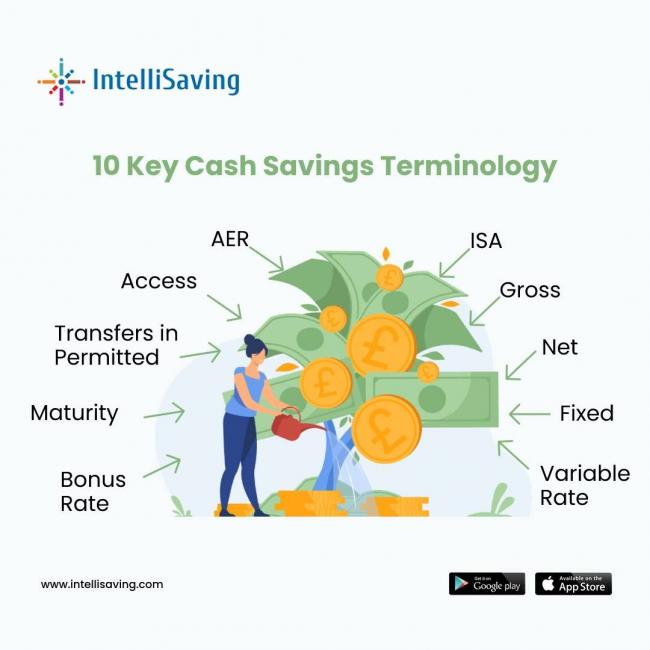
10 Key Cash Savings Terminology
- AER
AER stands for annual equivalent rate and it shows what the rate of interest would be if interest was paid and compounded once each year. The AER allows you to easily compare the interest rates on savings accounts. The higher the AER, the better the return on your savings. You may earn less than the AER if your money is not invested for as long as a year. `Compounding' is the process of adding together your savings and interest you have already earned and calculating interest on the total sum.
- Access
Access refers to the way in which you can manage your savings account, for example how you can obtain account information such as statements, make deposits or withdraw money. Some savings accounts only allow online access whereas others are also accessible in branch and on the telephone.
- Transfers in Permitted
Transfer in permitted relates to ISA accounts, and are when you can transfer the balance held in another ISA account into the account, up to a value of X. In simple terms, where an account states that transfers-in are permitted, you are able to transfer balances held in another ISA into that account.
- Maturity
Maturity applies to savings accounts that have a fixed term interest rate and refers to when the term ends.
- Bonus Rate
A bonus rate is a higher introductory rate of interest paid usually for a specified period and only if certain conditions are met. When the bonus rate ends the interest rate will reduce. This reduction can sometimes be significant.
- ISA
An ISA `Individual Savings Account' pays interest which is free from income tax and capital gains tax. There are three types of ISA, Cash ISAs, Junior ISAs and Stocks and Shares ISAs. There are limits (referred to as an `ISA allowance' on the maximum amount you can save in ISAs in a tax year. In the UK a tax year runs from 6 April to 5 April every year.
- Gross
Gross rate is the interest payable before income tax has been deducted
- Net
Net rate is the interest payable after the deduction of income tax
- Variable Rate
An interest rate is variable if your saving provider is able to increase or decrease it in the circumstances set out in your savings account terms and conditions. In most cases the provider must give you notice when they want to change your interest rate. Notice is typically given in the form of X, X days/weeks before the interest rate will change.
- Fixed
A fixed rate is an interest rate that is set for a specified term (for example, one year)